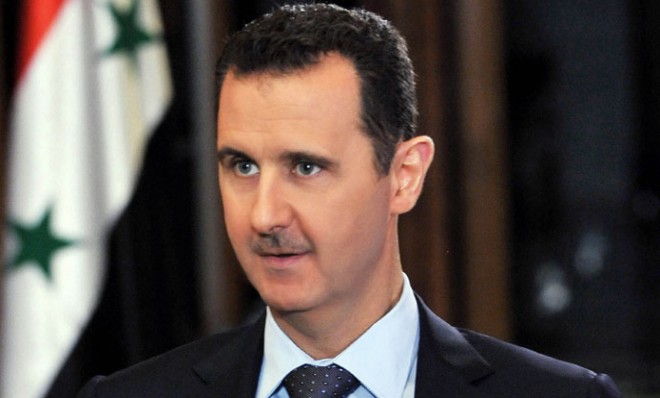Why Assad probably won't face war crimes charges
U.N. weapons inspectors are reportedly convinced that Syria's president used chemical weapons on his own people. That doesn't mean he'll be punished.

A free daily email with the biggest news stories of the day – and the best features from TheWeek.com
You are now subscribed
Your newsletter sign-up was successful
Next Monday, an inspection team will report to the United Nations that it found a "wealth" of evidence that the regime of Syrian President Bashar al-Assad used chemical weapons in an attack near Damascus that killed more than 1,400 people, according to Foreign Policy.
The report "will not directly accuse the Syrian regime of gassing its own people," reports Foreign Policy, but will present evidence based on rocket casings and ammunition, along with blood, soil, and urine samples that "points strongly in the direction of Syrian government culpability."
Assad has denied responsibility for the attack. "There has been no evidence that I used chemical weapons against my own people," he told Charlie Rose on Sunday.
The Week
Escape your echo chamber. Get the facts behind the news, plus analysis from multiple perspectives.

Sign up for The Week's Free Newsletters
From our morning news briefing to a weekly Good News Newsletter, get the best of The Week delivered directly to your inbox.
From our morning news briefing to a weekly Good News Newsletter, get the best of The Week delivered directly to your inbox.
Syria did, however, admit to having a chemical weapons program when it agreed to put its stockpile under international control as part of Russia's plan to avoid U.S. military intervention.
The U.N. report will likely add legitimacy to claims already made by the White House that the Assad regime has used chemical weapons in its fight against opposition forces. At least 100,000 people have died and 2 million people have been forced to flee the country since Syria's civil war began in 2011.
Samantha Power, the U.S. ambassador to the United Nations, has already made her case that Assad is guilty. (Warning: Graphic video)
Gen. Salim Idris, leader of the Western-backed Syrian Free Army, has called for Assad to be tried in the International Criminal Court (ICC). He's not the only one. Here's MSNBC's Timothy Noah:
A free daily email with the biggest news stories of the day – and the best features from TheWeek.com
The proper venue for punishing war criminals is the ICC. Any attack pursued solely to punish Assad would not be worth waging, but any attack that didn’t punish Assad would be insufficient … Crimes aren't committed by countries. They're committed by criminals, and criminals should be put on trial and, if found guilty, thrown in prison. [MSNBC]
But Syria, like the United States, is not party to the ICC, meaning Assad would have to be referred to the ICC by the U.N. Security Council. Russia has publicly stated its opposition to punishing Assad for any alleged war crimes, meaning it would almost certainly veto such an action — as it already did in January.
"Russia's real concern is not an ICC referral as such," The Guardian's Philippe Sands wrote earlier this year, "but the slippery slope towards a council resolution authorizing some degree of military action to which it might lead."
If, somehow, a damning U.N. report convinced Russia to let the Security Council refer Assad to the ICC and the Syrian leader was indicted, it would be hard for Russia to back down "in the face of hardening international public opinion that an arrest warrant would generate," Sands wrote.
Ultimately, Assad has little to fear from ICC, writes Slate's Joshua Keating, noting that the court has long been criticized for being "merely a mechanism by which Western countries judge African crimes," seeing as it has never indicted a non-African.
Not being able to prosecute the "most high-profile war crime being committed in the world," Keating adds, probably won't help the court's legitimacy.
Keith Wagstaff is a staff writer at TheWeek.com covering politics and current events. He has previously written for such publications as TIME, Details, VICE, and the Village Voice.